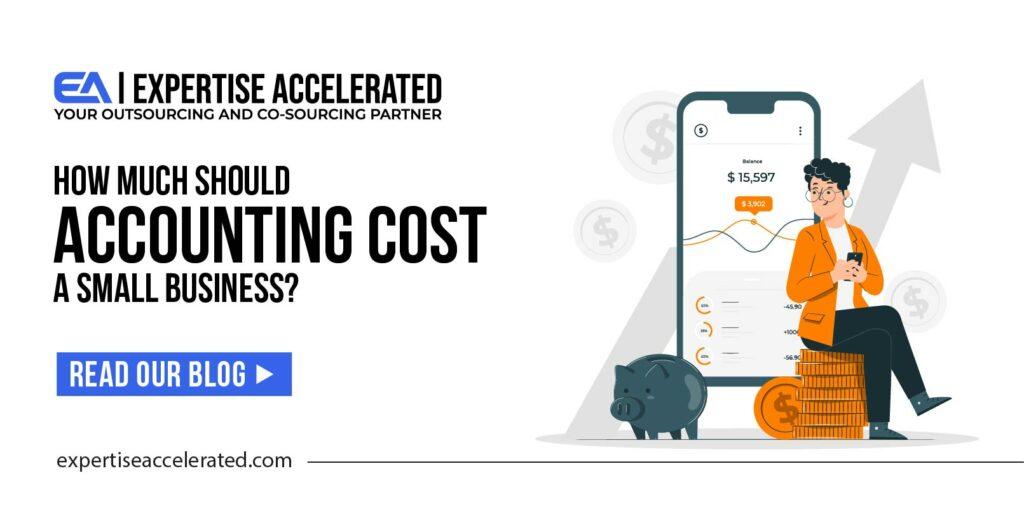Accounting is a tedious yet integral function in a business. For small businesses, the popular approach most entrepreneurs take is to get all the accounting work done themselves. While this is a viable strategy when starting out, it is unsustainable in the long run and can actually create long-term problems for the business.
Is hiring an accountant worth it?

Accounting is an unforgiving affair, where even the smallest of mistakes carry the risk of snowballing into a big problem. While the business is slowly finding its footing in the market in the beginning, the accounting workload is light enough to where it can be added to an entrepreneur’s responsibilities. However, as the business grows, the accounting load usually increases exponentially, and entrepreneurs may find themselves stretched thin trying to keep everything together. This drastically increases the risk of errors in the book of accounts which can negatively affect the business. This is why having an accountant makes all the difference in the long run.
The important thing to note is not the cost of an accountant, but rather the savings an accountant can bring to the business. Not having an accountant leaves the business vulnerable to inefficiencies in financial processes as well as errors in bookkeeping. When you hire an accountant, you are essentially erecting a wall between the business and the risks associated with its accounting.
For these reasons, spending money to improve the business’ accounting function is less of an expense and more of an investment for the future. With all that said, the reality is that hiring an accountant in 2022 is a costly endeavor. Many entrepreneurs wouldn’t even know what to expect when trying to find the right solution for the job. Luckily, this article should shed some light on what to expect and where to look when searching for accounting solutions.
The costs of accounting

When it comes to accounting costs, entrepreneurs must devise a budget for these resources:
- Technology
- Accounting Professionals
Technology
In a prior article titled “The Future of Accounting: Demand and Evolving Technology 2022”, experts at EA highlighted the growing importance of technology in the accounting sphere. The world is transitioning rapidly to cloud-based platforms due to the security and ease of access to accounting and financial information. With the pandemic highlighting the importance of technology to keep businesses running, investing in technology today is the best way to prepare for any future world-changing events.
Investing in cloud-accounting software is one of the most relevant costs to consider when setting up the accounting function for a business. With the sheer quantity of transactions and other financial data that must be recorded and processed, using software is the only reliable method to keep everything running smoothly.
There are a number of accounting software solutions available in the market, and some are even tailored to meet industry or client-specific requirements. Finding the best solution for the business requires market research and assessment of the business needs. Software Advice provides a lengthy guide to various accounting software available in the market along with their prices. To sum it up, entrepreneurs can expect accounting software to cost an average of about $400 per month, the cost changing as the business requirements shift.
Accounting professionals
While technology is immensely relevant to accounting today, the need for a professional accountant has not diminished at all. In fact, in the Practice of Now 2020 report by Sage, 79% of accountants highlighted that with software speeding up the mundane parts of accounting, client expectations of accountants had risen to include business and process consulting.
Accountants these days are not just there to keep the accounting books in order, they provide key insight into financial trends and business performance and can provide valuable input for growing the business. With all these added benefits, the cost of course also goes up. Accounting professionals are difficult to pin down when it comes to cost, needing consideration for various factors like industry, state, level of expertise required, etc.
According to The Bureau of Labor Statistics, the average rate of an accountant in the US is $37.14 per hour, and with variables like state and industry raising the price up to nearly $100 per hour, this can get expensive really fast.
How much should accounting cost a small business?
When it comes to how much accounting should cost a small business, the answer is simply that it should cost a hefty sum to maintain an in-house accounting function. If we talk about just numbers, then it can add up to as much as $5,000/- per month to maintain a basic accounting function in a business. This kind of cost is unfeasible for most small businesses.
For this very reason, most small businesses refrain from hiring a dedicated accountant. The solution to this seemingly-impossible dilemma lies in looking outward rather than inward for an alternative.
Expertise Accelerated as your accounting solution
Expertise Accelerated’s staff augmentation services are one such solution. EA is Connecticut-based outsourcing and staff augmentation specialist for accounting & finance and supply chain services. EA recognizes that the cost of hiring an in-house accountant is extremely high, and in the prevailing recessionary spell it is a burden that most small businesses find difficult to bear.
Led by Haroon Jafree (CPA), EA aspires to build bridges between US small businesses and the global accounting talent pool. EA’s unique staff augmentation services offer US businesses the opportunity to recruit some of the best remote accounting professionals at a fraction of the US cost.
Vetted and trained to fit each individual client’s needs, EA’s remote accounting professionals are tailored to the specific and exact needs of a business, offering complete control and transparency to the entrepreneurs.

